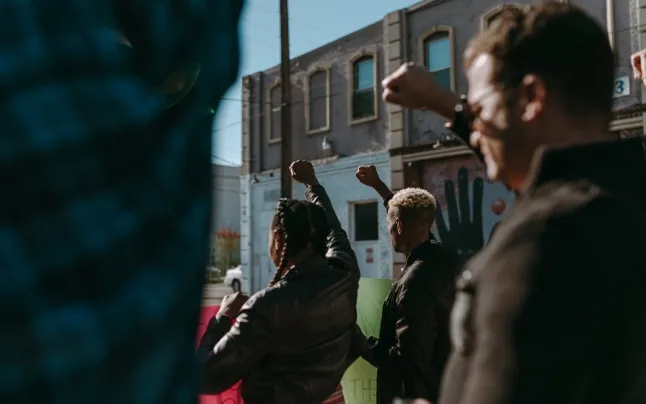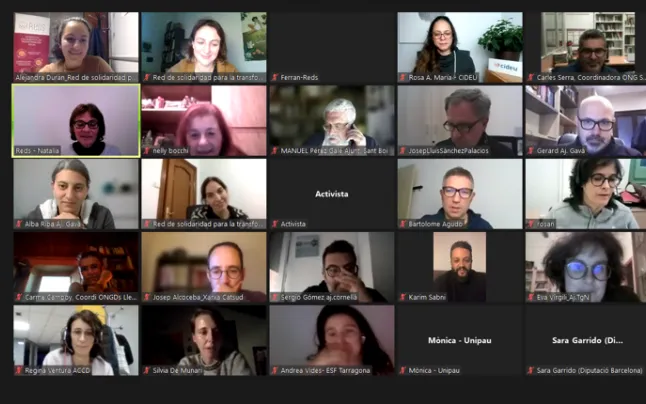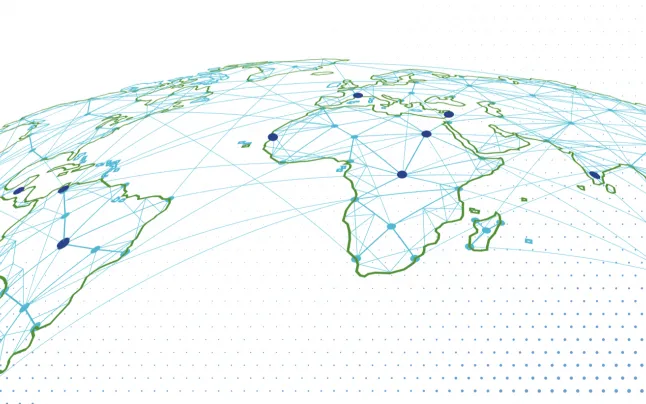The role of local governments, essential in the protection of human rights at international level
NGO REDS has published the diagnosis, with the aim of taking a step forward in international solidarity, and appealing to collective responsibility.
The collective responsibility that we must have as a community and as a society when it comes to protecting ethical and legal boundaries, and human rights, to ensure coexistence at the global level, is essential. This is stated in the diagnosis of the NGO Red de Solidaridad para la Transformación Social (REDS), in addition to asking local governments to appeal this responsibility, in order to safeguard human rights.
The diagnosis 'About political co-responsibility and international protection of human rights from local governments in Catalonia' has already been published, elaborated within the context of the program 'From the local to the global: international protection of human rights from local governments', a proposal of the same NGO. The aim is to reflect on the fundamental role of local governments in Catalonia in developing a series of actions that affect citizen politics and diplomacy.
Thanks to the collaboration of sixteen city councils in the four provinces of Catalonia, it has been possible to extract results and analyzes in the development of these actions, and the benefits and changes they produce worldwide in terms of protection of human rights. A diagnosis that has been divided into four parts.
Evolution and cooperation of the city councils
In recent years, local governments and citizens have played an essential role in the international protection of human rights. This collaboration and joint work, also of the administrations, aims to perform more international pressure and the creation of actions of denunciation, with the purpose of presenting them before international organizations of protection of the human rights.
According to the conclusions of the diagnosis, international cooperation actions are an essential tool for the internationalization of municipal agendas. These same agendas are built by the citizens themselves and the local fabric, in accordance with the concerns of the citizens and the maintenance of resources - economic, human, etc - that are destined to the areas of cooperation.
In Catalonia, it can be stated that the international protection of human rights is a priority, in addition to the Gender and Human Rights-Based Approach (EGiBDH).
Concrete actions
It's important to highlight the programs, activities and workshops that are carried out in the different municipalities of Catalonia to develop this awareness, protection and help. They are held from traditional fairs of cooperation and solidarity, such as the GavàMón fair or the Barrejant fair in Sant Boi de Llobregat, as well as annual fair trade fairs: 'Joves en Acció', Sabadell program, or the project 'Cafè Sant Adrià'.
There is also a wide range of awareness-raising and training initiatives on the protection of human rights, promoted mainly by the cooperation areas of the city councils: campaigns and programs such as 'We have rights, we weave freedoms', 'Eat prejudices' , the walk of light, among others. In addition, emergency support campaigns have been carried out, for example, to help a territory affected by a natural disaster, such as the earthquake in Haiti, promoted by Fons Català de Cooperació al Desenvolupament.
Different motions have been made in support of the host towns, in different projects such as the Human Rights Defenders Cities Program and the Xarxa d’Alcaldes i Alcaldesses per la Pau de Catalunya (Network of Mayors for Peace in Catalonia). Finally, it is necessary to take into account the different internal training programs for technicians in the areas of town halls, in order to be able to create, from here, workshops and activities aimed at schools or youth spaces.
Reactivate priorities
However, it should be added that the political impact of local governments, town councils, isn't considered a priority action in practice. Currently, there are advocacy groups and networks that are considered essential for this practice to be considered intrinsic to the areas of cooperation of municipalities. There are a number of municipalities consulted by REDS that consider that "these actions should be directed only to the central government of the state".
One strategy that has been carried out is to improve communication and the dissemination of these awareness-raising activities that are carried out from the areas of cooperation, in order to raise awareness and make the public aware of their existence. In addition, it's committed to promoting spaces for training, awareness and reflection in local governments and coordinated work teams between different departments of the municipalities to consolidate this collective awareness and institutional commitment.









Add new comment